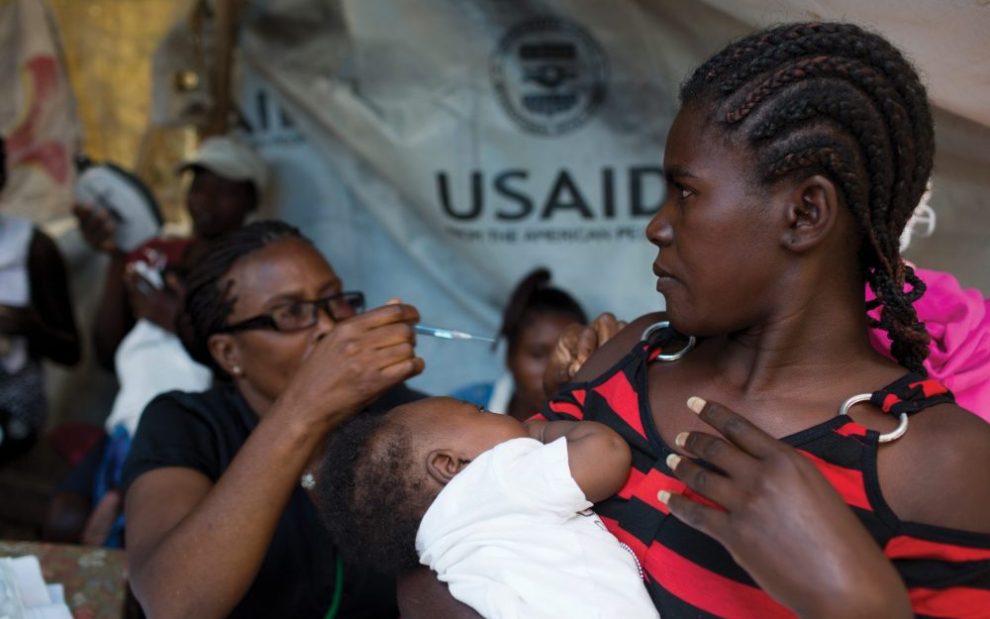By the time you read these words, the U.S. Agency for International Development (USAID)—created in 1961 by President John F. Kennedy during an era of global tension but also optimism and hope—will have been completely dismantled, a victim of prejudice, propaganda, and political cowardice. Soon after President Donald Trump ordered in January a freeze on U.S. humanitarian operations, his consigliere, Elon Musk, began dismembering USAID live on social media, obliterating critical humanitarian programs with pathological abandon.
Weeks of confusion and vague assurances that its life-saving work would be protected from Musk’s wrecking crew ended on February 26 when the White House acknowledged that more than 90 percent of U.S. humanitarian aid programs had been terminated. That abrupt policy shift will have a murderous impact around the world.
USAID, directly or through joint efforts with the United Nations or with collaborators such as Catholic Relief Services, had been on the verge of eradicating polio. It was intervening to halt an Ebola outbreak in Uganda and continuing work that has saved millions from tuberculosis and HIV/AIDS across the developing world. The agency was sponsoring humanitarian relief in crisis zones such as Sudan, Ukraine, and Gaza and supporting interventions in more than 130 other nations and territories around the world.
USAID achieved a lot of good during its institutional life—but not as much as it could have were it ever funded appropriate to the need. For decades, USAID has been a go-to budgetary bogeyman for Republican politicians hoping to rile up their base.
Many Americans came to believe the government was spending as much as 25 percent of its budget on foreign assistance. When informed that the foreign aid budget in reality was typically less than 1 percent of annual spending, to their credit, most Americans were aghast. They believed a figure closer to 10 percent of spending was worth devoting to humanitarian assistance, given our national wealth and global stature.
What can we do now in the aftermath of the USAID shutdown? We can surely remember our moral obligations to the poor and vulnerable around the world and double and triple up on donations to Catholic Relief Services, Caritas Internationalis, and other humanitarian agencies. That will make up some of the shortfall created by our nation’s cruel abandonment of its international obligations. We can also do more to see that the money “saved” by the destruction of USAID and other civic and international service and aid programs is not diverted to yet more military spending or else tossed back into the overstuffed pockets of the least vulnerable in the world.
And we should brace ourselves for what may come next. Yes, Americans do help people in other countries simply because it is the right thing to do—we cannot walk past the hungry, the blind, and the homeless and pretend we have no scriptural or natural law obligations to them. But there are other good justifications for what had been a minor investment in global good.
Absent a strong U.S. role, we can expect that diseases will cross borders into worldwide epidemics; that hunger, conflict, and failing states will compel millions of people to seek refuge through migration. We can expect nations in need to look for help from other powerful international players like China and Russia; we can anticipate that young people deprived of hope may seek answers in extremist ideologies that can lead them to violence.
Most of all, we should not allow USAID to go quietly into this dark night—what it accomplished, and what it stood for, are worth remembering and defending in the wild hope that its life-sustaining mission may one day be restored.
This article also appears in the May 2025 issue of U.S. Catholic (Vol. 90, No. 5, page 42). Click here to subscribe to the magazine.
Image: Flickr/USAID_IMAGES















Add comment